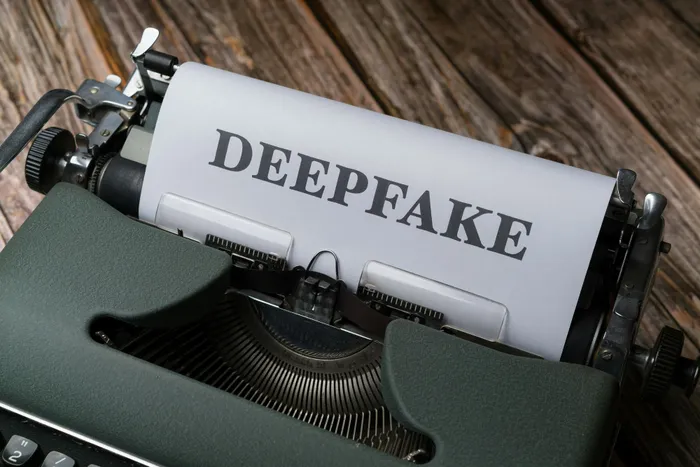
WITH social media platforms now remunerating content creators, there's a growing trend of producing fake content for the sake of engagement and going viral. There is a need for regulation of these platforms to curtail the harm caused by some of the AI-generated content.
Image: Pexels

Sandile Mdadane is the Editor of the Sunday Tribune
Image: File
RECENTLY, the SAPS has appealed to the public not to share false information over the kidnapping of a businessman who is believed to be still held by his captors.
The businessman, Jerry Boshoga, a farmer from the North West was abducted in November last year. SAPS was appealing to the public after several social media posts were shared about his apparent death.
The police have confirmed that there has been no news on his release or his death; understandably, such false information is distressing to his family.
Earlier last month, an elderly couple in Malaysia travelled for more than 370 km from Kuala Lumpur to visit a tourist attraction they had seen.
On arrival, it turned out that their tourist destination, a purported scenic cable car ride in the quiet town of Kuak Hulu, Perak, including what appeared to be a TV anchor who was exploring the new joyride, was entirely artificial intelligence (AI)-generated and therefore fake.
On discovering that they had wasted their time and money on something that didn't exist, the elderly woman was confused why someone would create something fake and share it.
The couple wanted to sue the TV anchor, which is impossible as the anchor was fake. People share fake news or misleading content for different reasons.
These days, social media platforms remunerate content creators based on how much content they produce and the number of engagements.
This piles up pressure on content creators to share content that may be harmful or misleading. There's little thought on the consequences of those affected by such content, as most of it doesn't come with any disclaimers.
There is little regard from the owners or administrators of the social media platforms to teach content creators to be ethical when they engage with their audience or when they produce content. What matters are the number of engagements and how many eyeballs were captured by the content.
Such an approach is problematic and creates many ethical dilemmas. Traditional media often take due care in ensuring news on the deaths of people is not released before their next of kin have been informed.
On social media, everyone wants to be the first to share the news. The same goes for missing persons' stories involving women.
The moment the missing person is found, traditional media proceed with caution, as at times, the missing person could be a victim of a sexual offence during her capture, which then prohibits the media from sharing the person's identity.
However, such is the nature of social media, where people's curiosity knows no bounds. Where families are vilified for seeking privacy to deal with the reunion with their loved one who went missing and the necessary steps to get them the healing and care they need.
Lately, people probe more, wanting to know where the victim of an abduction was, when what should matter is that they were found alive, and the further details truly belong to the family and the law enforcement authorities.
Incentivising content creation is not entirely a bad thing, as it can encourage valuable contributions, but it also gives oxygen to the spread of fake news. Fake news travels fast, as it usually evokes strong emotions.
This may desensitise people to harmful content as people train their eyes on earnings instead of honest and truthful engagements.
This may cause the rise of deepfake, where the latest technology is used to fabricate videos for the sole intention of making them go viral and maximising earnings.
This creates an unmitigated danger, especially during elections, pandemics, or national crises.
The flipside to this coin is that the public could lose trust in all content shared online, believing that everything shared is motivated by financial gain.
Though the remuneration of content creators is a great opportunity to empower them for the time they spend producing content to share, without boundaries and training on ethics and etiquette, it risks turning social media into an untrustworthy, chaotic marketplace of manipulation where profits and number of engagements matter more than the truth.
To this end, the owners and inventors of these platforms need to create awareness of content that isn't truthful so that users can make a distinction that such content isn't true, just like they do when the content is sponsored. There's also a growing need for regulation of these platforms to curtail the harm they cause.
A lie is easily repeated when not disputed. Even traditional media fell for it when, for many years, it ran with a lie that the late Judge Hillary Squires said in his judgment, there was a generally corrupt relationship between Schabir Shaik and former president Jacob Zuma.
It took a missive to one of the papers for the late judge to put an end to a phrase that had been attributed to him.
Currently, there's a quote accompanied by a picture that is misattributed to KwaZulu-Natal police commissioner Lieutenant-General Nhlanhla Mkhwanazi: "To forgive criminals is up to God; to send them to Him is up to me."
Mkhwanazi has never said such, yet, despite numerous attempts at trying to clarify this quote, it continues to circulate. Now with deepfake, such a quote can come to life with a video that shows the commissioner seemingly saying something he's never said.
There's an ongoing legal dispute between AI and creatives, especially musicians, on the technology's ability to uncannily mimic an artist's voice and release music they've never recorded.
The possibilities in AI are infinite, but it's important not to overlook the consequences thereof.
Like the unanswered queries surrounding Boshoga's fate or the wasted journey of the Malaysian couple, the stakes of unchecked misinformation are starkly evident. In our quest for knowledge, we must hold ourselves to a higher standard, pondering whether what we share is true, kind, and necessary.